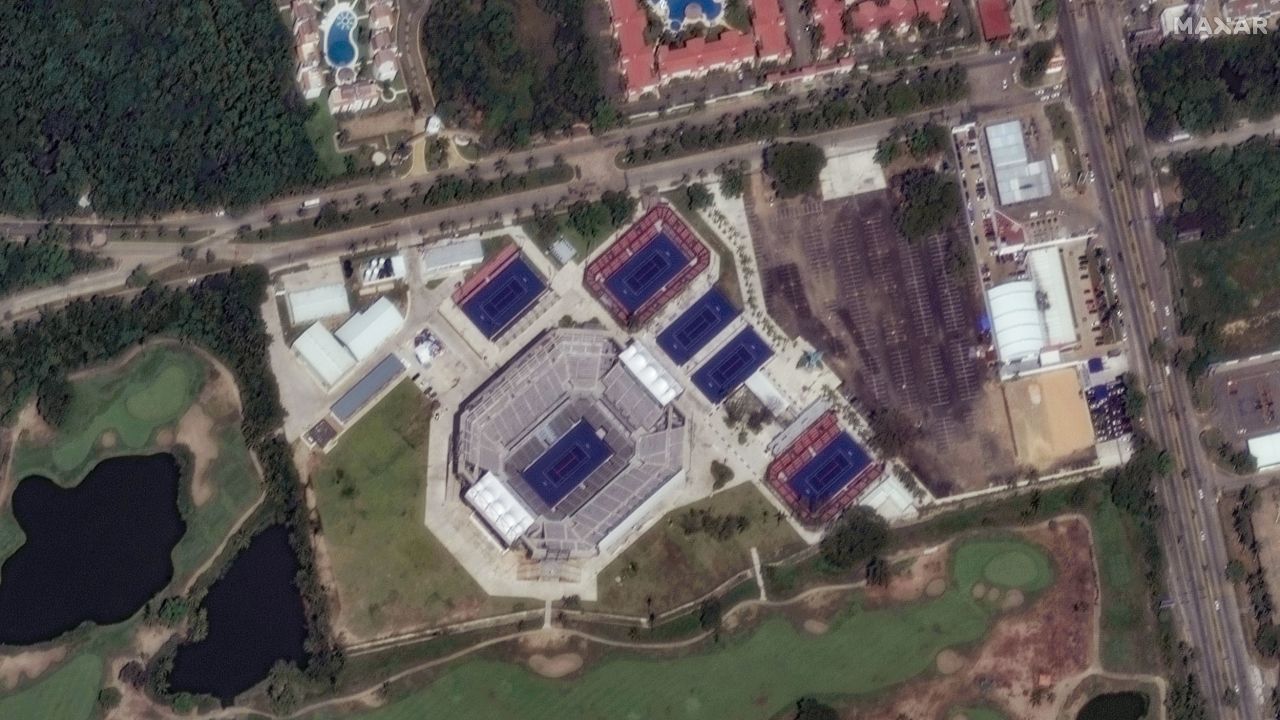New satellite images capture the scale of destruction Category 5 Hurricane Otis wrought in Acapulco and southern Mexico.
Few in history have endured a storm as strong as Otis – Acapulco never has. Its 165-mph winds and stronger gusts were akin to a slow-moving, 30-mile-wide, EF3 tornado.
At least 27 people were killed as the sea surged inland, urged forward by the storm’s wind which ripped and tore away at Acapulco’s skyline.
The city’s many high-rise hotels and residences which gleamed invitingly in the tropical sun before Otis are now mud-stained skeletons of concrete and twisted metal.
An estimated 80% of hotels in Acapulco have been severely damaged, Jorge Laurel, former president of the Acapulco Association of Hotels and Tourist Enterprises told CNN.
“This is a chaotic situation, a devastating scenario with unquantifiable damages,” Laurel told CNN. “There is no power, the entire electrical grid is semi-destroyed or totally destroyed.”
The unforecasted and exceptional suddenness by which Otis strengthened, fed by a warmer ocean, is a brutal example of the storms scientists say humans can expect in a climate changed by planet-warming pollution.
And it caught many off guard in Acapulco, some of whom are still missing. Melitón López came to the city Thursday to find his daughter Fátima who he had not heard from since the storm started its assault.
“She said, ‘I’m on the bridge, there’s a lot of damage, trees are falling, pieces of buildings are falling,’ and then we didn’t hear from her anymore,” López said.
Laurel estimated 40,000 visitors were in Acapulco before the storm hit, despite it being the offseason for tourism. A group of tourists told CNN they sheltered under a bridge for several hours as the storm raged around them after getting caught out while traveling back to their hotel via bus.
The storm’s survivors who call this place home, and the tourists who sought it out as a place of escape, strapped what belongings remained to their cars, seeking shelter, a way out or both. Others turned to walking to try to find a way out of a city with a crippled airport and roads blocked and congested by debris and vehicles.
Mexican authorities said Friday morning they were opening Acapulco’s airport in a limited capacity to commercial flights from Mexico City to evacuate people and bring medical supplies to the city. They also said they were sending 270 buses to the area to help evacuations.
For those who remain, the extent of the damage is so severe, recovery seems a distant prospect.
“Acapulco needs a lot of help, the federal government needs to put its full attention here, the reconstruction will take a long time, a lot of investment is required and many support programs,” Laurel said.
Aid has been slow to come by and people are growing frustrated and more desperate with time. CNN witnessed people taking food and basic supplies from several stores.
“The people are telling us they are not getting help – they are not getting water, they are not getting food,” CNN’s Gustavo Valdés reported from Acapulco Thursday. “They were telling us they just needed something to get by.”
CNN’s Claudia Rebaza, Gustavo Valdés, David von Blohn, Abel Alvarado, David Shortell contributed to this story














